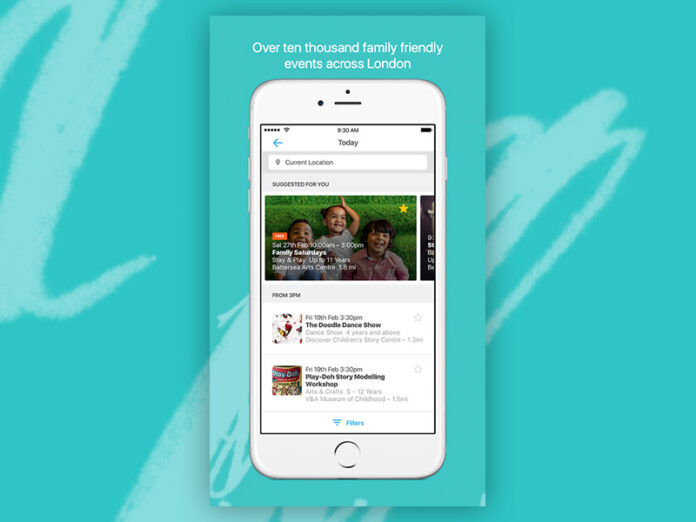
According to the Federal Bureau of Investigation (FBI), around 500,000 child predators roam the internet to target kids daily. These criminals use all kinds of tools to reach and groom their victims and can cause psychological damage to children.
As a parent, you want to protect your kids from these offenders. The best way to do this is to keep them out of dangerous applications that online predators use to contact kids. Want to know more about things you can do to safeguard your children? Read more.
5 Apps You Should Watch

1. Hoop
At surface value, Hoop is perfectly fine. It was first used as a dating app, and for a time, it included dating features such as filtering by location and adding bios. That is until it removed those functions.
Today, it is used as a social application where users can connect with people all over the world, no matter their age. It utilizes Snapchat for communication, which allows users to send pictures and messages with fewer worries.
What makes it a red flag for parents is that it is marketed to children 12 years old and up. In fact, has Teen and 12+ restrictions on Google Play Store and the App Store.
This accessibility combined with the privacy and secretive nature of the communication platform can be easily exploited by online predators who intend to harm kids.
2. Whisper

Whisper is a platform where users can share their thoughts with fewer inhibitions. It keeps them under the cover of anonymity, making it preferable for venting, confessions, and advice. In essence, it is a community for users around the world.
Aside from having the ability to interact within a community, users can also exchange private messages through this platform. This app does not allow individuals below 17 years old, but just like other social media sites, kids can easily bypass these limitations.
Child predators online can leverage the anonymity and private messaging offered by Whisper. It is important to note that the age rating on the App Store says that this platform may have content tackling suggestive themes, drug use or references, and profanity.
3. Omegle Alternatives

Omegle is a web-based platform that lets users talk to strangers through chat. This one randomizes the matching process, letting individuals connect with others all over the globe. The catch is that you do not need to register to use it. You just need to go to the website and start chatting away.
Chats are not as harmless as they seem because they can enable grooming and other abusive practices by online predators. On top of this, Omegle also has a randomized video chat feature that is unmoderated and without an age vetting process. This often shows explicit content.
While Omegle does not have an app, you will find numerous alternatives on both the Play Store and App Store. Some of the names you should look out for are OmeTV, Omega, Monkey TV, CamSurf, Roulette Chat, and OMG ChatLive.
Say, you did not find any Omegle alternative on your kid’s phone. Do not let your guard down that easily because as mentioned, Omegle is a web-based service, which means people can access it using an innocent browser like Google Chrome, Opera, Firefox, and more.
4. Discord

Discord is another messaging and community application intended to help people connect with people with the same interests. Here, you will find servers or communities dedicated to a wide range of topics from books and games to knitting, gardening, and more.
A lot of these servers are moderated, but in many cases, mods fail to detect covert activities like grooming.
While the intention of this application is good, you should remember that the limitless variety of topics can include explicit ones. Moreover, even the most innocent communities can be infiltrated by online predators looking for kids to victimize.
5. Instagram

Another popular application is Instagram, which may not be harmful per se, but can be used by child predators once they find their opening. The thing about Instagram is that the minimum age it allows to join is 13. Once your kid joins this platform, they can be open to contacts initiated by predators.
One thing that makes Instagram especially dangerous for children is the fact that it is an image-based platform, which means that your kid will be posting pics of themselves and their friends, making them more exposed to criminals if their profiles are public.
Even if your kid is careful about approving follow requests, remember that it is easy to pretend to be a kid online. The same principle applies to other social media platforms such as TikTok, Facebook, Twitter, Snapchat, and more.
Tips for Effectively Monitoring Kids’ Phones for Safety

Now that you know what apps can be exploited by criminals to harm your kid, you need to implement an Internet safety protocol within your family.
The most important thing to do is to talk to your kids about the dangers of the Internet. Help them understand that while it is a useful tool to connect with friends and family, it is also being used by bad people who mean to harm them. Something as innocent as giving away the phone number can reveal their personal identity to the scammer. You can visit numbertrackerpro.com for more information.
What you should remember is you need to do this tactfully and in a way that can easily be processed by children.
You do not want your child to be traumatized by stories of child predators, making them paranoid users. You also do not want to spark their curiosity, making them seek out these dangerous apps by themselves.
Supervision is an important part of protecting your kids, but you should also recognize their privacy, so they do not feel like their boundaries are not being respected.
Again, talking with them about these things can help them understand the need for supervision tools such as parental controls, monitoring of apps, and checking private messages.
Final Thoughts
The Internet can be difficult to navigate for kids and parents, especially with rampant cases of child predators online. With more knowledge about dangerous applications that criminals can use to contact kids, you can create a safer online environment for them.











